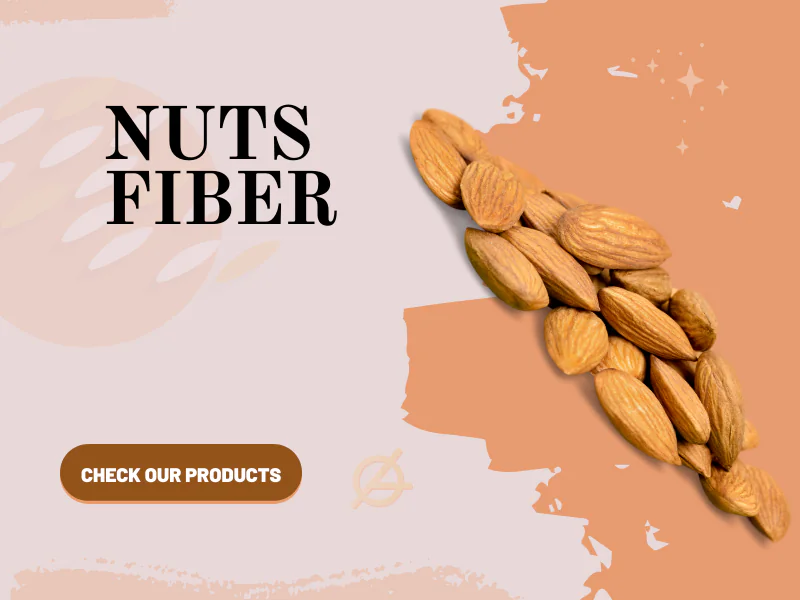In the realm of nutrition, fiber is often hailed as a hero. It aids digestion, supports heart health, and helps maintain a healthy weight. But did you know that nuts, in addition to their other nutritional benefits, can be a fantastic source of dietary fiber? In this in-depth guide, we will explore the fiber content of various nuts and how they can contribute to a fiber-rich diet.

Fiber: The Unsung Hero in Nutrition
Fiber, a non-digestible carbohydrate found in plant-based foods, comes in two forms: soluble and insoluble. Both types offer distinct health benefits, making them essential for a balanced diet.
- Soluble Fiber: Dissolves in water and forms a gel-like substance, helping to lower cholesterol and stabilize blood sugar levels.
- Insoluble Fiber: Does not dissolve in water and adds bulk to the stool, aiding in regular bowel movements and preventing constipation.
Nuts and Their Fiber Content
Nuts, known for their healthy fats and protein, are often underestimated for their fiber content. Let’s delve into the fiber content of some common nuts:
Fiber Content of Various Nuts (per 1 ounce):
- Almonds: Approximately 3.5 grams
- Walnuts: Around 1.9 grams
- Pistachios: Roughly 2.9 grams
- Cashews: Approximately 1 gram
- Hazelnuts: About 2.7 grams
- Peanuts (technically legumes but often grouped with nuts): Nearly 2.3 grams
The Role of Nuts in a High-Fiber Diet
Incorporating cheap wholesale nuts in bulk into your diet can contribute to your daily fiber intake. Their fiber content, combined with other nutritional benefits, makes them an excellent choice for those looking to boost their fiber consumption.
Advantages of Nut Fiber:
- Digestive Health: Insoluble fiber in nuts supports regular bowel movements and prevents constipation.
- Weight Management: Fiber promotes a feeling of fullness, which can help control appetite and reduce overall calorie intake.
- Heart Health: Soluble fiber can help lower LDL (bad) cholesterol levels, reducing the risk of heart disease.
How to Include Nuts for Maximum Fiber Benefit
As a Snack
A handful of nuts can be a convenient and fiber-rich snack. Almonds and pistachios are excellent choices.
In Meals
Add chopped nuts to salads, yogurt, or oatmeal to increase the fiber content of your meals.
In Baking
Use nut flours (like almond flour) as a gluten-free and high-fiber alternative in baking recipes.
Balancing Nuts in Your Diet
While nuts offer numerous health benefits, they are also calorie-dense. Here are some tips to incorporate them wisely:
- Portion Control: Stick to a small handful (about 1 ounce) per day to avoid excessive calorie intake.
- Diverse Diet: Include a variety of fiber sources in your diet, such as fruits, vegetables, and whole grains.
Myths vs. Facts
Myth: All nuts are equally high in fiber. Fact: Fiber content varies among different nuts, so it’s beneficial to consume a mix for a broader range of nutrients.
Myth: You can consume unlimited nuts for fiber. Fact: While nuts are a great fiber source, moderation is key due to their calorie density.
Conclusion
In summary, nuts are not just a tasty snack; they are a valuable source of dietary fiber. Incorporating them into your diet can support digestive health, aid in weight management, and contribute to heart health. By understanding the fiber content of different nuts and using them creatively in your meals and snacks, you can enjoy the many advantages they offer in a balanced and healthful way.

